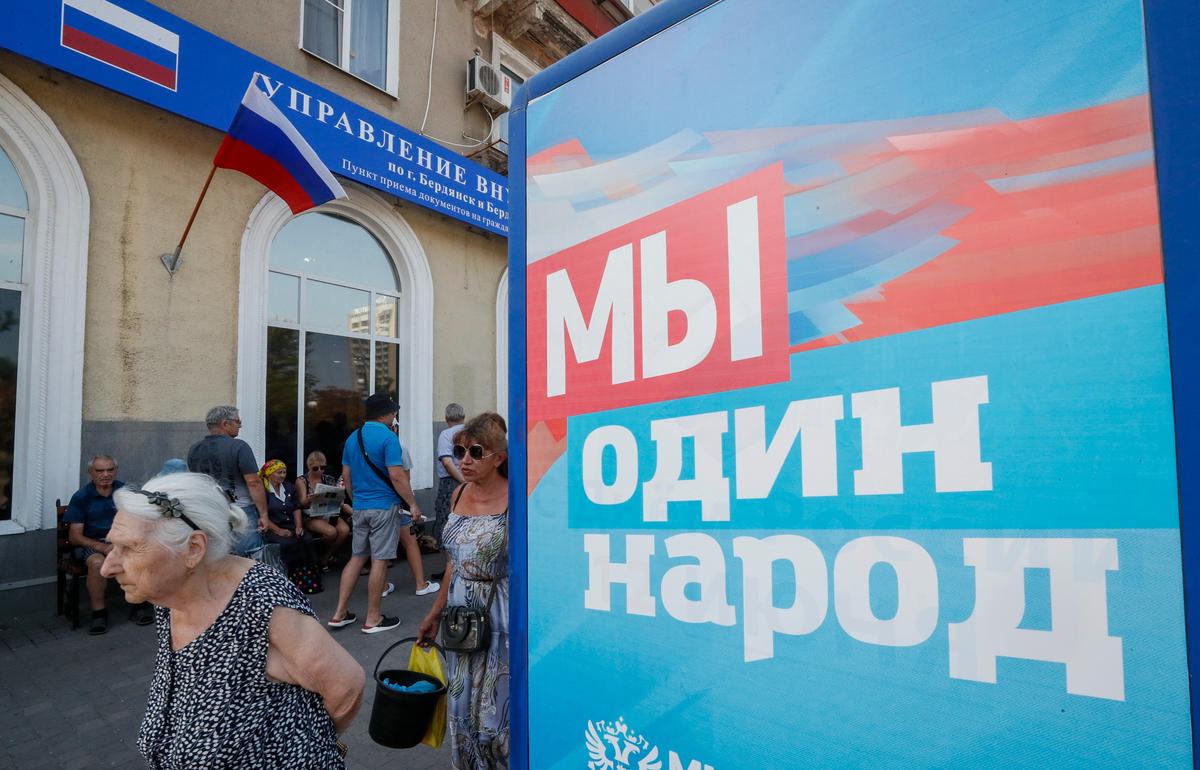
A poster outside an office processing Russian citizenship and passport applications reads: “We are one people”, in Russian-occupied Berdyansk, in Ukraine’s Zaporizhzhia region, 31 August 2022. Photo: EPA-EFE / YURI KOCHETKOV
A scheme to assist Russian “compatriots” living outside the Russian Federation following the collapse of the Soviet Union in 1991 to resettle in the country recorded its lowest uptake for 14 years in 2024, state-affiliated business daily Kommersant reported on Thursday.
Just 31,700 ethnic Russians and those with long family links to the country took advantage of the programme last year, fewer than half the number from 2021, the year before the war began, when 78,500 chose to migrate. The majority of those who resettled in Russia in 2024 came from Kazakhstan and Tajikistan.
The Interior Ministry said that the low figures were to be expected, since a mandatory test to prove that applicants’ knowledge of Russian was “sufficient to communicate both orally and in writing” was introduced at the beginning of 2024.
There was an increase in the number of migrants moving to Russia from “unfriendly states”, however — some 1,800 in all — following the introduction of a new visa specifically aimed at people attempting to flee the West on ideological grounds. Approximately 700 people moved to Russia from Germany, while another 600 people moved from both Moldova and Latvia last year.
“Pro-Russian views and support for the special military operation … are now becoming cause for persecution by the authorities in these countries,” a ministry spokesperson told Kommersant.
The program for the resettlement of compatriots was launched in 2006, and aimed to help Russians or people with Russian connections who found themselves living outside the country when the Soviet Union collapsed to return.
